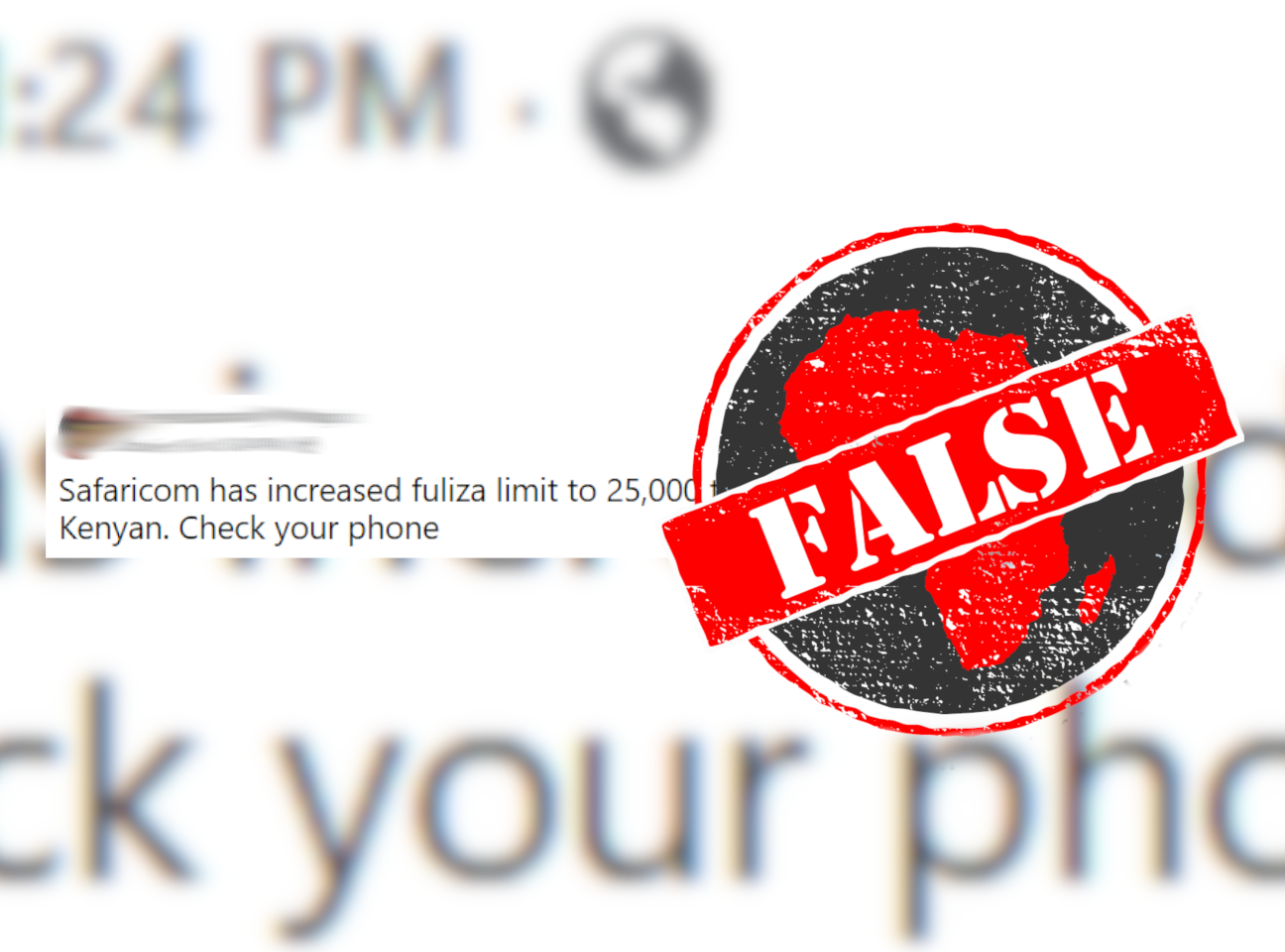IN SHORT: How much Kenyans can borrow through short-term lending service Fuliza is determined largely by their repayment record. So an increase in the borrowing limit across the board would be welcome. But posts on social media claiming this are false.
“Breaking! Safaricom has increased fuliza limit to 25,000 to Every Kenyan. Check your phone,” reads a Facebook post published on 19 October 2022.
Fuliza is an overdraft service offered by Safaricom, Kenya’s largest telecommunications company, in partnership with two of Kenya’s biggest banks.
Fuliza allows users of the company’s popular M-Pesa mobile money service to complete a transaction, even if they don’t have enough funds in their accounts.
Similar posts have also been posted here, here, and here.
According to Safaricom, each active M-Pesa line qualifies for Fuliza.
Once you register, you are given a limit which can be reviewed every three months, depending on your credit rating.
Customers can raise their credit limit by using M-Pesa often and paying off their loans. By some estimates close to 20% of Kenyans use Fuliza.
But is everybody's Fuliza limit, regardless of credit score, now KSh25,000 (about $US205)? We checked.

Fuliza limit reviewed every three months
Africa Check contacted Safaricom through a direct message on Twitter.
The information in the social media posts is false, the company said.
“That is not true, your limit may be reviewed upwards by the bank at their discretion.
“A review is done regularly and depends on many factors including your credit score, your savings and loan repayment patterns and many more. As soon as your limit is reviewed you will be notified via sms.”
Kenyans hoping to borrow more will have to build up their credit score the old-fashioned way.
Republish our content for free
For publishers: what to do if your post is rated false
A fact-checker has rated your Facebook or Instagram post as “false”, “altered”, “partly false” or “missing context”. This could have serious consequences. What do you do?
Click on our guide for the steps you should follow.
Publishers guideAfrica Check teams up with Facebook
Africa Check is a partner in Meta's third-party fact-checking programme to help stop the spread of false information on social media.
The content we rate as “false” will be downgraded on Facebook and Instagram. This means fewer people will see it.
You can also help identify false information on Facebook. This guide explains how.




Add new comment